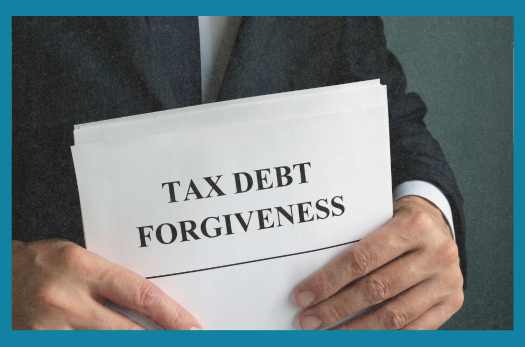Is There a One-Time Tax Forgiveness?

How Can You Qualify for Tax Forgiveness?
You may be eligible for programs that reduce your tax bill. These include:
- Offer in Compromise (OIC). An OIC allows eligible taxpayers to settle their tax debt for less than the full amount owed. To qualify, you must typically show significant financial hardship and provide financial documentation proving you cannot afford to pay. It’s best to work with a tax lawyer who can help determine a fair offer and negotiate a settlement that will be accepted.
- Penalty Abatement. In certain circumstances, you may be able to reduce or avoid IRS penalties if you fall into one of the eligible categories. This does not eliminate your tax bill. Only the penalty is abated.
- Partial Payment Installment Agreement (PPIA). You may qualify for a reduction in how much you have to pay back to the IRS over the life of your installment agreement. However, the IRS will conduct a close review of your finances to determine eligibility. In addition, even if you qualify initially, the IRS will review the PPIA every two years and can change the terms of the agreement if it deems that you can afford to pay more.
- Currently Not Collectible (CNC) Status. CNC status temporarily halts tax debt collections without forgiving the debt. To qualify, you must show that you cannot pay both your taxes and basic living expenses. As with the PPIA, the IRS may remove you from CNC status if it is determined that you can pay some or all of your liability. If you are still on CNC status when the statute of limitations runs out, your debt may be forgiven.
- Bankruptcy. In some cases, tax debt may be discharged in bankruptcy. However, there are specific rules and conditions that apply, and filing for bankruptcy can have long-term consequences on your credit.
Do You Have to Apply for Tax Forgiveness?
None of the programs mentioned above are automatic. You must request relief from the IRS and meet the strict requirements for the particular program, including filing the appropriate form and providing supporting documentation.
While it would be great to be able to obtain across-the-board one-time tax forgiveness, that is not the reality of dealing with the IRS. Instead, you need to educate yourself about your options or get help from a tax attorney to determine what is the best way to resolve your tax problem.
If you are behind on your taxes, contact us for a consultation.


